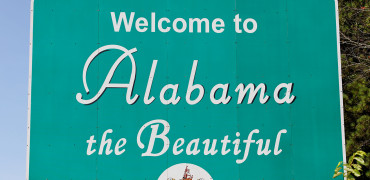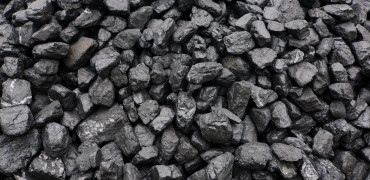What is probably the most important General Election in a generation takes place this coming Thursday and it is easy to be overawed by the noises coming out of the parties as they compete for your vote.
So just what are the main points of the three main UK parties that could make a difference to housing, construction, the environment, air quality and renewables?
It is certainly not my place to tell you how to vote in the election – although I would urge you to make sure you DO vote as I come across too many people who think politics has nothing to do with them.
If you don’t see why you should bother doing something as strenuous as putting an 'X' in a box on a voting slip, please take just 42 seconds of your time and watch this short BBC film from 2012.
Here in the UK, it is so easy to take democracy for granted, yet we only have the right to vote because of the past struggle of our forefathers and mothers, who fought and sometimes died for our right to vote.
If you don’t think this affects you, take just 42-seconds to watch this BBC video in the link above.
So, what do the Tories, Labour and the Lib Dems have to say on the issues affecting our industry? I hope you’ll forgive me not focusing on the Greens, SNP, Plaid Cymru, UKIP or any of the other parties standing. This is a deliberate choice for the sake of brevity.
House building
The Tories have stated that they will build 1 million new homes by the end of 2020 and add an additional ½ million by the end of 2022, whilst encouraging best practice design for new builds. A Tory Government will also reform the housing white paper to free up more land for housebuilding.Labour promises to build over 1 million new homes and establish a new Housing Department whilst giving new powers to Councils to encourage house building. They also promise a help-to-buy scheme for first-time buyers, until 2027 and controls on private rent rises.
The Lib Dems promise to build 300,000 new homes a year by 2022, with 30,000 of these being rent-to-own properties a year by 2020. They also propose at least 10 new garden cities and will ban landlords from renting poorly insulated homes.
Social housing
Labour state they will deliver 100,000 new council or housing association homes each year by 2022.
The Lib Dems promise to lift the borrowing cap on local authorities and increase the capacity of housing associations to borrow to build.
A Conservative government says that it will help councils build high quality, sustainable and integrated communities through council housing deals and will also give greater flexibility to housing associations to allow them to increase their stock. They also promise new fixed-term social housing with an automatic right to buy after 10 or 15 years.
Energy efficiency
The Lib Dems will restore the zero carbon homes policy and insulate 4 million homes, with all homes to be EPC band C by 2035.
The Conservatives are planning for an EPC band C for all fuel-poor homes by 2030 and promise to review the requirements for new homes.
Labour will consult on a new zero carbon homes standard and insulate 4 million homes as a priority by offering interest-free loans and calling on landlords to improve efficiency.
Energy bills
The Conservatives promise to introduce a tariff cap and a review commission to look into the cost of energy.
Labour offers a £1,000 cap on the average dual-fuel standard tariff.
The Lib Dems promise to reduce bills through an extensive energy efficiency scheme, aiming for 30% of the domestic energy market to be serviced by smaller companies than the usual ‘Big Six’ energy suppliers.
Air quality
Labour will bring forward a new clean air act and retrofit diesel buses with cleaner engines in areas with the most severe problems.
The Lib Dems will introduce a diesel scrappage scheme and an air quality plan, whilst extending ultra-low emissions zones.
The Tories manifesto talks about acting against poor air quality in urban areas and also promises to plant a million trees in cities and towns.
Shale gas and fracking
The Lib Dems oppose fracking and will support investment in hydrogen technologies.
The Conservatives are the only major party to declare support for fracking and strongly support the development of the shale gas industry.
Labour would ban fracking altogether and invest in state-of-the-art low-carbon gas.
Climate Change Act
Both the Conservatives and Labour state that they will keep the current act and targets in place. Lib Dems propose changing the targets to 80% reduction in greenhouse gases by 2040 and zero carbon by 2050.
The Environment
The Conservatives state that this will be the first generation to leave the environment in a better state and will develop a comprehensive 25-year environment plan. Labour promise ‘blue belts’ to protect the oceans and a new clean air act, whilst the Lib Dems will set legally binding capital targets on biodiversity, water and clean air.
The Economy
Central to being able to deliver on any of its manifesto promises is how a government runs the economy.
Labour’s detailed manifesto talks about eliminating the government’s deficit on day-to-day spending within five years. It also promises the creation of a new national investment bank, designed to fill gaps in lending by the private banks and deliver long-term finance to investment. The manifesto also talks about bringing rail companies back into public ownership whilst capping fares, reversing the privatisation of the Royal Mail and transitioning to public ownership of the energy system. It also promises to balance government spending with the amount raised through taxation.
There is less detail of costing in the Conservative manifesto which talks about continuing to restore the public finances with the ultimate aim of having a balanced budget by the middle of the 2020’s. The original deadline of 2015 has been increased to 2025 and the manifesto also removes a previous Tory pledge not to raise national insurance or income tax. At the same time, the Conservatives promise to Increase the national living wage so that by 2020 it reaches 60% of average earnings. The Tories also promise to introduce an energy tariff cap so that the vulnerable are protected but it will maintain the competitive element within the retail energy market. The party also promises to launch a £23bn productivity investment fund.
The Lib Dems say they will boost the economy with the commitment to a £100bn package for infrastructure investment. They promise an independent review on how to set a living wage and will look to eliminate the deficit for day-to-day spending by 2020. The Lib Dem manifesto does point to more borrowing (as does the Labour manifesto) as compared to the Conservatives but the manifesto is costed and they promise to borrow only to invest.
Brexit – The elephant in the room
Of course, overshadowing all of this are the negotiations over Brexit, which will impact on any government and its ability to deliver on its manifesto promises.
For now though, this coming Thursday is what matters most and as the polls deliver a huge variation of predictions, this election over any other that I can remember is simply too difficult to call.
Being a real political ‘nerd’, I'm really looking forward to 10 o’clock on Thursday night, when the last poll closes and we then get the two or three hours of vacuous talk from pundits and politicians who are trying to second guess the result and in essence, making things up to fill the vacuum as they wait for the results to come in.
I can't wait!
Russell Jones is PR & Communications Manager for Mitsubishi Electric Living Environment Systems in the UK.
If you have any questions about this article or want to know more, please email us. We will contact the author and will get back to you as soon as we can.



